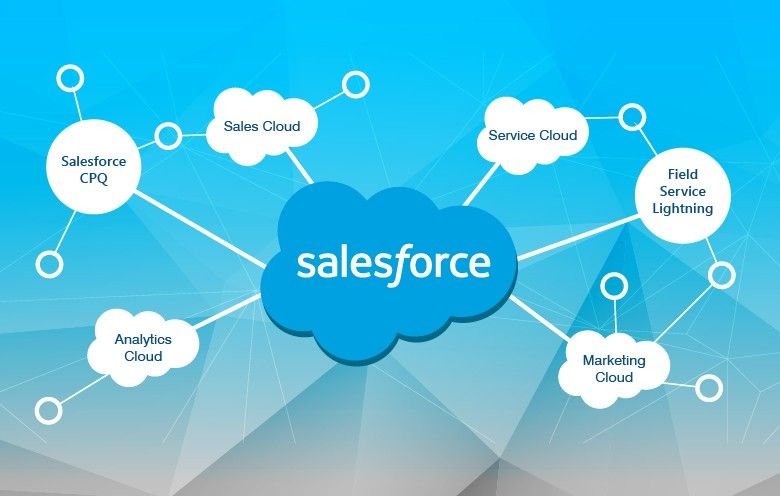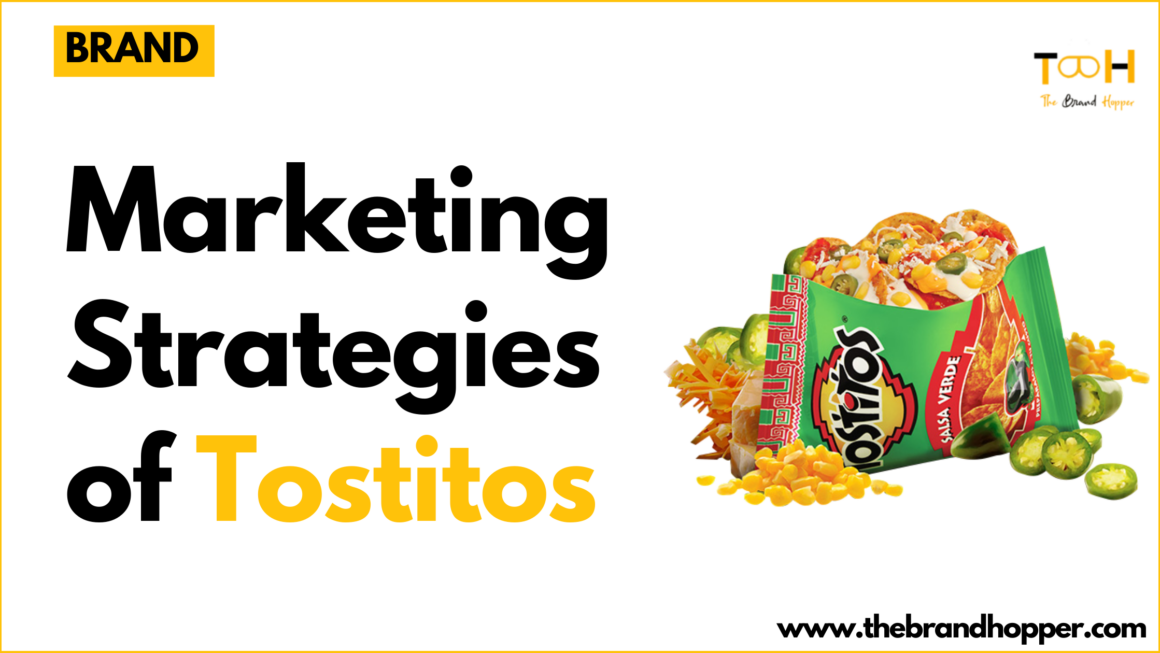Salesforce, a name synonymous with Customer Relationship Management (CRM), has become an indispensable tool for businesses navigating the complexities of the digital age. Founded in 1999 by Marc Benioff and Parker Harris, Salesforce revolutionized the CRM landscape by introducing a cloud-based platform, accessible through a web browser. This pioneering approach eliminated the need for expensive on-premise software and IT infrastructure, democratizing CRM and making it accessible to a wider range of businesses, from small startups to established enterprises.
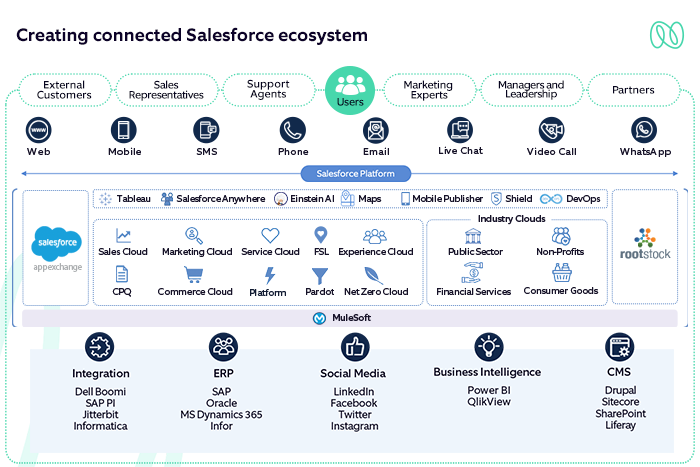
Today, Salesforce reigns supreme as the world’s leading CRM provider, boasting a robust and comprehensive suite of tools that empower organizations to manage every facet of their customer interactions. More than just a contact management system, Salesforce offers a unified platform for:
- Sales and Marketing Automation: Streamline lead generation, nurture prospects, manage marketing campaigns, and forecast sales with powerful tools. Salesforce empowers businesses to target the right audience, personalize customer journeys, and convert leads into loyal customers more efficiently.
- Customer Service Management: Provide exceptional customer service with features like ticketing systems, self-service portals, and live chat functionalities. These tools enable businesses to resolve inquiries promptly, address customer concerns effectively, and enhance overall customer satisfaction.
- Data Analytics and Reporting: Gain valuable insights into customer behavior, sales performance, and marketing effectiveness through powerful analytics dashboards and reporting tools. This data-driven approach allows businesses to make informed decisions, optimize strategies, and achieve sustainable growth.
Beyond its core functionalities, Salesforce offers a unique advantage: customizability. Its flexible platform can be tailored to the specific needs of various industries, from healthcare and finance to retail and manufacturing. Additionally, the Salesforce AppExchange provides a thriving marketplace for thousands of third-party applications that integrate seamlessly with the platform, further extending its functionalities and catering to specific industry requirements.
Salesforce’s impact extends far beyond individual companies. Its commitment to innovation has fostered a vibrant ecosystem of developers, partners, and consultants who contribute to the platform’s continuous evolution. This collaborative environment ensures that Salesforce remains at the forefront of technological advancements, enabling businesses to adapt to changing customer expectations and market trends.
Furthermore, Salesforce recognizes the importance of social responsibility. The company actively engages in philanthropic initiatives through its Salesforce.org arm, focusing on education, equality, and environmental sustainability. This commitment underscores Salesforce’s dedication to making a positive impact beyond the realm of business.
In conclusion, Salesforce is not merely a software solution; it’s a transformative force shaping the way businesses connect with their customers. Its comprehensive functionalities, customizable platform, and thriving ecosystem empower organizations to build stronger relationships, drive growth, and navigate the complexities of the modern business landscape. As technology continues to evolve, Salesforce is poised to remain a dominant force, enabling businesses to thrive in the ever-changing digital age.
Top Salesforce Competitors and Alternatives
Salesforce, while a CRM giant, faces competition from a diverse range of players catering to different needs and budgets. Here’s a breakdown of some of the top Salesforce competitors and alternatives:
1. Microsoft Dynamics 365
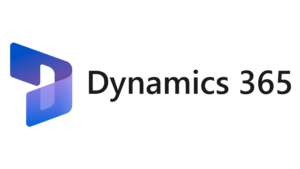
Microsoft Dynamics 365 and Salesforce are both prominent Customer Relationship Management (CRM) solutions, competing in the market to offer businesses comprehensive tools for managing customer interactions, sales, marketing, and service.
Dynamics 365, developed by Microsoft, presents a strong competitor to Salesforce with its seamless integration with other Microsoft products such as Office 365, Azure, and Power Platform. This integration provides users with a unified experience, streamlining workflows and enhancing collaboration across different business functions. Microsoft Dynamics 365 is known for its flexibility, allowing businesses to choose and pay for only the modules they need, making it a scalable solution for organizations of varying sizes. Its robust analytics and business intelligence capabilities, coupled with its familiarity to users already accustomed to Microsoft products, make it an attractive alternative to Salesforce.
When comparing Microsoft Dynamics 365 and Salesforce, several factors come into play. Both platforms offer features like lead and opportunity management, sales forecasting, and customer service, but there are distinctions in terms of integration, customization, and pricing.
The table below highlights key factors where the two CRM solutions compete:
| Factor | Microsoft Dynamics 365 | Salesforce |
|---|---|---|
| Integration | Strong integration with Microsoft products (Office 365, Azure) | Native integration with various third-party apps and platforms |
| Customization | Highly customizable, especially for users familiar with Microsoft tools | Extensive customization options with Apex programming language |
| Pricing Model | Flexible pricing with modular options | Tiered pricing based on user types and feature sets |
| User Interface | Familiar Microsoft interface for users of other Microsoft products | Intuitive and user-friendly interface |
| Scalability | Scales well for small to large enterprises | Suitable for businesses of all sizes, particularly mid-size to large enterprises |
| Analytics and Reporting | Robust analytics and business intelligence capabilities | Powerful analytics with Salesforce Einstein Analytics |
2. Oracle CX Cloud Suite
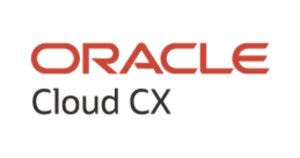
Oracle CX Cloud Suite and Salesforce are major players in the Customer Relationship Management (CRM) space, each offering a suite of tools designed to streamline and optimize various aspects of customer interactions.
Oracle CX Cloud Suite positions itself as a strong competitor to Salesforce with its comprehensive cloud-based solution, providing a range of applications for sales, marketing, service, and commerce. One of the key competitive advantages of Oracle CX Cloud Suite is its tight integration with other Oracle Cloud services, offering businesses a seamless experience across their entire cloud ecosystem. This integration can be particularly appealing for organizations already invested in Oracle’s broader suite of enterprise applications. Furthermore, Oracle’s CX Cloud Suite emphasizes the use of artificial intelligence (AI) and machine learning to enhance customer experiences, automate processes, and drive data-driven decision-making, contributing to its competitive edge in the CRM market.
To provide a clearer overview of the competing factors between Oracle CX Cloud Suite and Salesforce, the table below highlights key aspects:
| Factor | Oracle CX Cloud Suite | Salesforce |
|---|---|---|
| Integration | Tight integration with other Oracle Cloud services | Native integration with various third-party apps and platforms |
| AI and Machine Learning | Emphasizes AI and machine learning for enhanced insights | Leverages AI capabilities through Salesforce Einstein |
| Customization | Highly customizable with a focus on adapting to unique business needs | Extensive customization options, including Apex programming language |
| Industry Focus | Strong presence in industries such as finance, manufacturing, and retail | Widely used across diverse industries with a focus on flexibility |
| Global Presence | Established global presence with a wide customer base | Global leader with a vast customer base across regions |
| Pricing Model | Pricing based on specific modules and services used | Tiered pricing based on user types and feature sets |
| User Interface | Intuitive user interface with a focus on user experience | User-friendly interface with a focus on simplicity and usability |
These factors underline the competitive dynamics between Oracle CX Cloud Suite and Salesforce, showcasing the strengths and distinctive features that organizations may consider when choosing a CRM solution based on their unique requirements and preference
3. HubSpot CRM
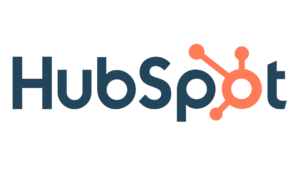
HubSpot CRM has emerged as a significant competitor to Salesforce, offering a user-friendly and intuitive platform that caters to the needs of small and medium-sized businesses.
HubSpot’s CRM is known for its simplicity, ease of use, and quick implementation. It provides a centralized system for managing contacts, deals, and customer interactions, with a strong focus on inbound marketing and lead generation. HubSpot’s CRM is often praised for its seamless integration with HubSpot’s marketing and sales tools, creating a comprehensive ecosystem for businesses looking to align their marketing and sales efforts. Its pricing model, which includes a free version of the CRM, makes it an attractive choice for smaller businesses seeking a cost-effective solution without compromising on essential features.
In comparing HubSpot CRM and Salesforce, the table below highlights key factors influencing the choice between the two CRM solutions:
| Factor | HubSpot CRM | Salesforce |
|---|---|---|
| User Base | Popular among small and medium-sized businesses | Widely adopted by enterprises of all sizes |
| Pricing Model | Offers a free version and transparent pricing | Tiered pricing based on user types and feature sets |
| Ease of Use | Intuitive interface, easy to navigate | Robust but may have a steeper learning curve for new users |
| Integration | Seamless integration with HubSpot marketing and sales tools | Native integration with various third-party apps and platforms |
| Scalability | Well-suited for small to medium-sized businesses | Suitable for businesses of all sizes, particularly mid-size to large enterprises |
| Marketing Automation | Integrated marketing tools for inbound marketing | Marketing Cloud offering comprehensive marketing automation features |
| Customization | Limited compared to Salesforce, but sufficient for many SMBs | Extensive customization options, including Apex programming language |
| Analytics and Reporting | Robust analytics for basic reporting needs | Advanced analytics capabilities with Salesforce Einstein Analytics |
These factors highlight the different strengths of HubSpot CRM and Salesforce, allowing businesses to choose based on their specific needs, budget considerations, and the scale of their operations. While Salesforce may be the go-to choice for large enterprises, HubSpot CRM appeals to businesses prioritizing simplicity, affordability, and integration with inbound marketing strategies.
4. Zoho CRM
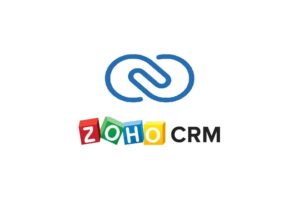
Zoho CRM stands as a formidable competitor to Salesforce, offering a comprehensive suite of customer relationship management tools designed to cater to businesses of all sizes.
Zoho CRM is known for its flexibility, scalability, and affordability, making it an attractive option for small and medium-sized enterprises (SMEs). With a focus on providing a user-friendly experience, Zoho CRM offers features such as lead and contact management, sales automation, and analytics. Its modular pricing allows businesses to select the specific features they need, providing a cost-effective solution without compromising on functionality. Zoho CRM also emphasizes integration with a variety of third-party applications, enabling users to connect their CRM system with other business tools seamlessly. This adaptability positions Zoho CRM as a robust alternative to Salesforce, particularly for organizations looking for a customizable solution at a competitive price point.
A comparative analysis of Zoho CRM and Salesforce is outlined in the table below, highlighting key factors influencing the choice between these two CRM solutions:
| Factor | Zoho CRM | Salesforce |
|---|---|---|
| Pricing Model | Affordable pricing with modular options | Tiered pricing based on user types and feature sets |
| User Interface | Intuitive and user-friendly interface | User-friendly, but may have a steeper learning curve for new users |
| Integration | Strong integration capabilities with various third-party apps | Native integration with various third-party apps and platforms |
| Customization | Highly customizable, allowing users to adapt the system to their needs | Extensive customization options, including Apex programming language |
| Scalability | Well-suited for small to medium-sized businesses | Suitable for businesses of all sizes, particularly mid-size to large enterprises |
| Automation Features | Offers robust automation features for sales and marketing processes | Comprehensive automation capabilities, including AI with Salesforce Einstein |
| Mobile Accessibility | Mobile-friendly with dedicated mobile apps | Mobile-friendly with a range of mobile applications and accessibility options |
These factors underscore the competition between Zoho CRM and Salesforce, showcasing the strengths and trade-offs that businesses need to consider when selecting a CRM solution. Zoho CRM’s emphasis on affordability, flexibility, and user-friendliness positions it as a compelling choice for SMEs seeking a feature-rich CRM without the enterprise-level price tag.
5. SAP Customer Experience (C/4HANA)
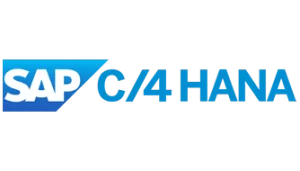
SAP Customer Experience (C/4HANA) emerges as a robust competitor to Salesforce, offering a suite of integrated solutions designed to deliver end-to-end customer engagement.
C/4HANA by SAP stands out with its comprehensive approach, combining solutions for marketing, sales, commerce, service, and customer data management. One key strength lies in its integration capabilities with other SAP products, creating a seamless experience for businesses already utilizing SAP’s broader enterprise suite. C/4HANA prioritizes a holistic customer view, providing a 360-degree perspective across various touchpoints, enabling businesses to enhance customer experiences and drive better-informed decision-making. SAP’s commitment to leveraging emerging technologies such as artificial intelligence and machine learning further positions C/4HANA as a contender in the CRM market, offering advanced analytics and predictive capabilities to optimize customer interactions.
A detailed comparison of SAP Customer Experience (C/4HANA) and Salesforce is outlined in the table below, highlighting key factors influencing the choice between these two CRM solutions:
| Factor | SAP Customer Experience (C/4HANA) | Salesforce |
|---|---|---|
| Integration | Seamless integration with other SAP enterprise solutions | Native integration with various third-party apps and platforms |
| Modular Approach | Suite of integrated solutions covering marketing, sales, commerce, service, and customer data management | Comprehensive suite with individual modules for various functions |
| Artificial Intelligence | Utilizes AI and machine learning for advanced analytics and predictive capabilities | Leverages AI capabilities through Salesforce Einstein |
| Industry Focus | Strong presence in industries such as manufacturing and retail | Widely used across diverse industries with a focus on flexibility |
| Global Presence | Established global presence with a wide customer base | Global leader with a vast customer base across regions |
| Scalability | Scalable for businesses of all sizes | Suitable for businesses of all sizes, particularly mid-size to large enterprises |
| User Interface | Provides an intuitive interface for users | User-friendly interface with a focus on simplicity and usability |
| Pricing Model | Customized pricing based on individual business needs | Tiered pricing based on user types and feature sets |
These factors illustrate the competitive landscape between SAP Customer Experience (C/4HANA) and Salesforce, showcasing the strengths and distinctions that businesses should consider when choosing a CRM solution based on their unique requirements and existing technology infrastructure.
6. SalesforceIQ
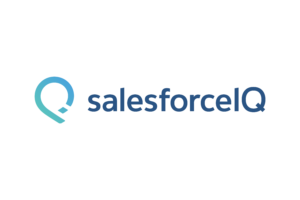
SalesforceIQ, a product within the Salesforce ecosystem, positions itself as a competitive solution by offering a simplified and intelligent CRM experience.
SalesforceIQ focuses on providing small and medium-sized businesses (SMBs) with an easy-to-use platform that integrates seamlessly with their existing workflows. One notable feature is its intelligent insights derived from email communication, helping users prioritize leads and opportunities effectively. As part of Salesforce’s strategy to cater to businesses of varying sizes, SalesforceIQ streamlines the CRM process for SMBs, emphasizing automation and intelligent data analysis to empower users with actionable insights.
A comparison between SalesforceIQ and Salesforce is outlined in the table below, highlighting key factors influencing the choice between these two CRM solutions:
| Factor | SalesforceIQ | Salesforce |
|---|---|---|
| Target Audience | Geared towards small and medium-sized businesses | Widely used across diverse industries with a focus on flexibility |
| Ease of Use | Emphasizes simplicity and ease of use | User-friendly, but may have a steeper learning curve for new users |
| Integration | Seamlessly integrates with email communication for intelligent insights | Native integration with various third-party apps and platforms |
| Automation | Focuses on automation to streamline CRM processes | Comprehensive automation capabilities, including AI with Salesforce Einstein |
| Scalability | Tailored for the needs of SMBs, scalable as businesses grow | Suitable for businesses of all sizes, particularly mid-size to large enterprises |
| Pricing Model | Transparent and straightforward pricing for SMBs | Tiered pricing based on user types and feature sets |
| Artificial Intelligence | Utilizes AI for intelligent insights from email communication | Leverages AI capabilities through Salesforce Einstein |
| Customization | Provides sufficient customization options for SMB requirements | Extensive customization options, including Apex programming language |
These factors emphasize the distinctive features of SalesforceIQ and Salesforce, enabling businesses to choose a CRM solution based on their size, specific needs, and preferences. While SalesforceIQ caters to the simplicity and automation needs of SMBs, Salesforce offers a broader suite of features suitable for enterprises of varying scales.
7. Pipedrive

Pipedrive has established itself as a formidable competitor to Salesforce, particularly for businesses that prioritize a streamlined and user-friendly approach to CRM.
Pipedrive is renowned for its intuitive design, emphasizing ease of use and simplicity, making it a preferred choice for small and medium-sized businesses (SMBs). The platform focuses on sales pipeline management, providing a visual representation that helps users track and prioritize deals effectively. Pipedrive’s user interface is designed with the salesperson in mind, offering a straightforward and visual approach to managing leads, deals, and contacts. The platform’s customization options allow businesses to tailor the CRM system to their specific needs, providing a flexible solution that aligns with their unique sales processes.
A detailed comparison between Pipedrive and Salesforce is outlined in the table below, showcasing key factors influencing the choice between these two CRM solutions:
| Factor | Pipedrive | Salesforce |
|---|---|---|
| Target Audience | Geared towards small and medium-sized businesses | Widely used across diverse industries with a focus on flexibility |
| Sales Pipeline Focus | Strong emphasis on visual sales pipeline management | Offers comprehensive sales pipeline features along with other functionalities |
| Ease of Use | Prioritizes simplicity with an easy-to-navigate interface | User-friendly, but may have a steeper learning curve for new users |
| Customization | Provides customization options to tailor the CRM to specific needs | Extensive customization options, including Apex programming language |
| Integration | Integrates with various third-party apps for enhanced functionality | Native integration with a wide range of third-party applications and platforms |
| Pricing Model | Transparent and straightforward pricing, suitable for SMBs | Tiered pricing based on user types and feature sets |
| Automation Features | Offers basic automation features for sales processes | Comprehensive automation capabilities, including AI with Salesforce Einstein |
| Reporting and Analytics | Provides basic reporting and analytics features | Robust analytics capabilities with Salesforce Einstein Analytics |
These factors highlight the contrasting strengths and focus areas of Pipedrive and Salesforce, allowing businesses to choose a CRM solution based on their size, industry, and specific requirements. Pipedrive’s emphasis on simplicity and visual sales pipeline management positions it as an attractive choice for sales-centric SMBs, while Salesforce caters to a broader spectrum of business needs, including comprehensive customization and advanced analytics.
8. Freshworks CRM (formerly Freshsales)
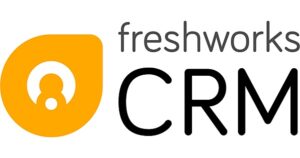
Freshworks CRM, formerly known as Freshsales, has emerged as a robust competitor to Salesforce, particularly for businesses seeking a user-friendly CRM solution with a focus on customer engagement.
Freshworks CRM is designed to simplify sales processes and enhance customer relationships, providing a comprehensive suite of tools for lead management, deal tracking, and communication. The platform’s emphasis on ease of use is reflected in its intuitive interface, making it accessible for sales teams of all sizes. Freshworks CRM also stands out for its AI-powered lead scoring, helping businesses prioritize leads based on their likelihood to convert. The platform’s modular pricing model caters to businesses of varying sizes and budgets, allowing users to choose the features they need without committing to a one-size-fits-all solution.
A comparative analysis between Freshworks CRM and Salesforce is presented in the table below, highlighting key factors influencing the choice between these two CRM solutions:
| Factor | Freshworks CRM (formerly Freshsales) | Salesforce |
|---|---|---|
| User-Friendly Interface | Designed with an intuitive interface for easy navigation | User-friendly, but may have a steeper learning curve for new users |
| Lead Scoring | Utilizes AI-powered lead scoring for effective prioritization | Leverages AI capabilities through Salesforce Einstein |
| Modular Pricing Model | Offers a modular pricing model for flexibility | Tiered pricing based on user types and feature sets |
| Automation Features | Provides automation features for streamlining sales processes | Comprehensive automation capabilities, including AI with Salesforce Einstein |
| Integration | Integrates with a variety of third-party applications | Native integration with a wide range of third-party apps and platforms |
| Customization | Offers customization options for tailoring the CRM to specific needs | Extensive customization options, including Apex programming language |
| Customer Support | Emphasizes strong customer support with multiple support channels | Comprehensive customer support with a variety of support options |
| Mobile Accessibility | Provides mobile applications for on-the-go access | Mobile-friendly with a range of mobile applications and accessibility options |
These factors showcase the distinctive features of Freshworks CRM and Salesforce, enabling businesses to make an informed decision based on their preferences, budget constraints, and specific CRM requirements. Freshworks CRM’s focus on simplicity and AI-driven lead scoring positions it as a compelling choice, especially for small to medium-sized businesses. Meanwhile, Salesforce’s extensive customization options and advanced capabilities cater to a broader range of organizational needs.
9. Zendesk
Zendesk is a prominent player in the customer service and engagement arena, offering a suite of tools designed to enhance customer relationships and streamline support operations.
Key Features:
- Omnichannel Support: Manage customer interactions across various channels, including email, chat, phone, and social media, from a single platform.
- AI-Powered Automation: Utilize artificial intelligence to automate routine tasks, provide instant responses, and improve overall efficiency.
- Customizable Workflows: Tailor workflows to fit specific business processes, ensuring a personalized approach to customer service.
- Robust Analytics: Access detailed reports and analytics to gain insights into customer behavior and team performance.
- Integration Capabilities: Seamlessly integrate with a wide range of third-party applications to enhance functionality and adapt to business needs.
Comparison with Salesforce:
| Factor | Zendesk | Salesforce |
|---|---|---|
| Primary Focus | Customer support and engagement | Comprehensive CRM with a broad range of sales, service, and marketing tools |
| Ease of Use | User-friendly interface with straightforward setup | Robust platform with extensive features, which may require a steeper learning curve |
| Customization | Flexible customization options tailored to support workflows | Highly customizable across various business processes |
| Pricing Structure | Tiered pricing with options suitable for small to medium-sized businesses | Tiered pricing aimed at medium to large enterprises |
| Integration | Strong integration with numerous third-party applications | Extensive integration capabilities within its ecosystem and with external applications |
Ideal For:
Zendesk is particularly well-suited for businesses that prioritize customer support and seek an intuitive platform to manage and enhance customer interactions. Its focus on delivering seamless support experiences makes it a strong contender for organizations aiming to improve customer satisfaction and loyalty. For those evaluating Zendesk vs. Salesforce, Zendesk stands out as a simpler, more specialized solution for customer service needs.
In conclusion, while Salesforce remains a dominant force in the CRM landscape, a diverse range of competitors offer compelling alternatives. Whether you prioritize comprehensive features, affordability, ease of use, or industry-specific functionalities, there’s a solution tailored to your specific needs and budget. By carefully evaluating your requirements and exploring the options available, you can select the ideal CRM partner to empower your business growth and forge lasting customer relationships.
Also Read: Top Qualcomm Competitors and Alternatives
To read more content like this, subscribe to our newsletter

